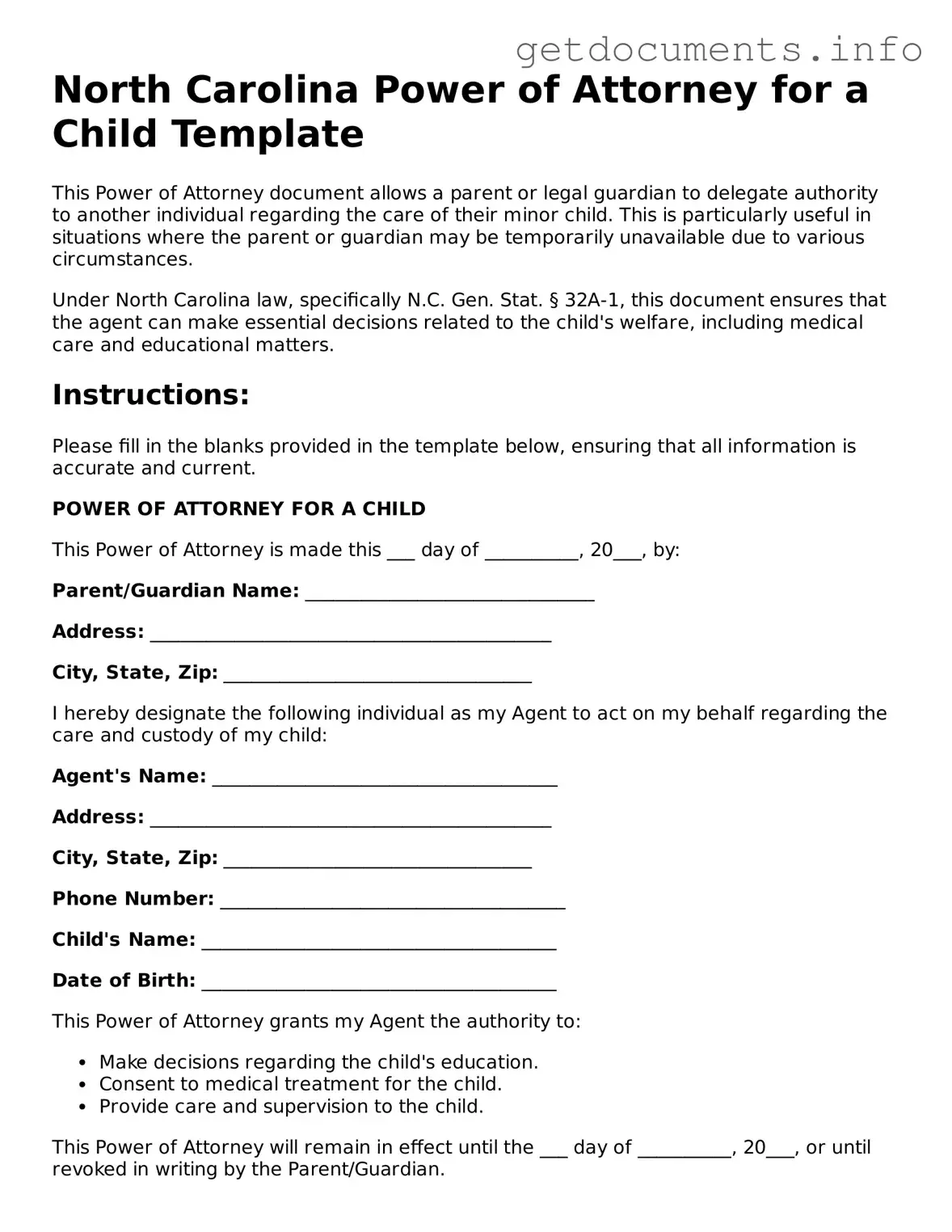Free Power of Attorney for a Child Template for North Carolina
The North Carolina Power of Attorney for a Child form is a legal document that allows a parent or guardian to grant temporary authority to another adult to make decisions on behalf of their child. This arrangement can be crucial in situations where the parent is unavailable, such as during travel or medical emergencies. Understanding how to properly fill out this form is essential for ensuring your child's well-being and care.
Ready to take the next step? Fill out the form by clicking the button below.
Access Power of Attorney for a Child Editor

Free Power of Attorney for a Child Template for North Carolina
Access Power of Attorney for a Child Editor
Got places to be? Complete the form fast
Fill out Power of Attorney for a Child online and avoid printing or scanning.
Access Power of Attorney for a Child Editor
or
⇩ PDF File
